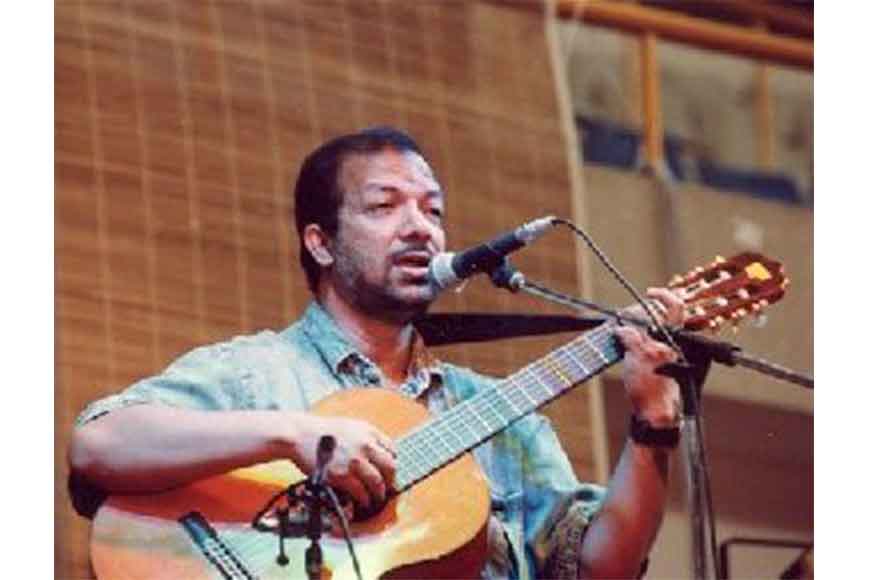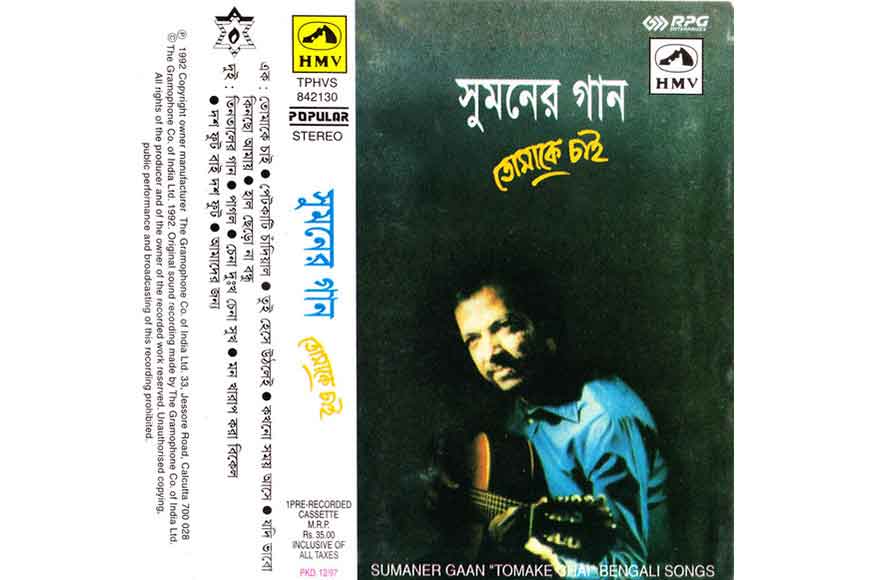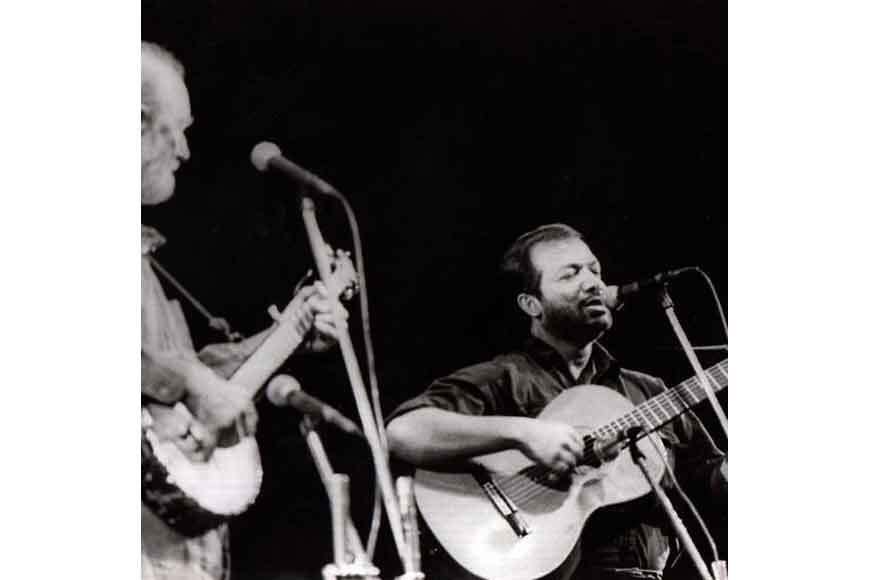Kabir Suman on his birthday - Indrajit Sen recalls a four-day musical journey with him in Germany

The sounds are as sweet as the mountain air, the easy pluck of banjo strings, the wailing notes of a harmonica, a romping guitar chord, a baritone vocal. On the surface they seemed so simple, even at times fleeting, as if they were created to celebrate only a particular moment or to capture a certain emotion or transient feelings of love and loss. Yet, they were drawn from the unknown depths and woven through the frame, thus presenting a powerful musical legacy.
That was Suman Chattopadhyay, now Kabir Suman whom I knew and met for the last time almost 32 years ago. It was a winter morning in 1987 when I boarded a train from Gare du Nord station in Paris for a three and half hour journey to Cologne in Germany. That was the place where Suman da had relocated from Kolkata the previous year, to work for the Bengali Department of Voice of Germany. After a hectic schedule across Europe and America on work, this was a break I was looking forward to ---- a few days of undisturbed flow of music and adda.

By then, Suman da had recorded a few songs in Kolkata for an album to be published by his group Nagarik. It was on a cassette format and in his absence, few of his fans were distributing them free of cost to like-minded people, even leaving them on empty seats of buses at the Garia Bus Depot. Suman da had earlier converted a one room accommodation in Baishnabghata, on the southern fringes of Kolkata, where he recorded the songs on his four-track recorder with him playing the electronic keyboard. I used to frequent the den at times. By then our own music group ‘Nogor Philomel’ was churning out original compositions and our first album ‘Shohor Sangeet’ was published from HMV.
Somehow the song ‘Bijoner Chayer Cabin,’ composed and rendered by me, touched a chord and we started conversing on a plethora of issues ranging from music, politics, society, poetry and more. What impressed me most was his perspective on Bengali songs. Though he was an ardent fan of the old school lyrics and compositions rendered by the stalwarts of that time, he felt despite their compositional strength, these songs did not represent contemporary times, lyrically. He observed the language and thoughts of modern poems, stories, novels, media articles, drama, movies etc have started to change. However, as per him Bengali music was stagnant.
My train to Cologne was on time and as decided earlier between us, I called him from the public booth to let him know I have reached the station. ‘Indrajit, amake ponero minute shomoy dao, ami ashchi.’ (Give me 15 miutes Indrajit, I am on my way)
In an unknown country at the age of 27, looking forward to meet one of my favourite musical personality gave me goosebumps. More so for his assurance, laced with compassion in a perfect baritone left me with relief and had it been the present times, it could only evoke in me one of his runaway hit songs, Chena Dukkho Chena shukh, Chena Chena Hashi Mukh. He reached as he said in next fifteen minutes. We boarded a cab and he sat beside the driver telling me that this was the norm here, to respect the dignity of labour.
The next few days with him was a period in my life that I shall never be able to express in words, even if I try to re-construct and relive those moments. Suman da was staying with Maria, whom he later married once they were back in Kolkata. Every evening, for the next four days with him was filled with music and songs that he was composing during his stay away from home. And not to mention the passion with which he spoke about his thoughts on Bengali songs. His compositions always had many twists of plot, countless characters and settings ---- both urban and rural. He used to analyze his compositions and make me understand the nuances they had in them. It was a celebration of music for me where I could understand how musical strains cross boundaries and influence one another. One artist borrows from another, who borrows from yet another and how he was reshaping them with his own lyrics and fresh solos. Reinventions were plentiful, even unstoppable.
I could foresee an explosion on its way in Bengali music. I could see a person in front of my eyes immersed in writing and composing Bengali songs and dreaming of bringing in a revolutionary change in the contemporary music scenario of Bengal. An exciting time was in the offing which could change the way vernacular music could be perceived.

He decided to return to Kolkata --- a homecoming for him. His first solo album ‘Tomake Chai’ was published in 1992 and there was no looking back for him. But I still remember the way he rendered the song on his third floor apartment in Germany and showed his concern whether it would be accepted in this city. But little did he realize then that when people here would listen to them, they would take great pride in their diversity and history and allow them to enter their soul and make them an indispensable part of their lives.
I haven’t met Suman da after 1987 when he gave me that warm hug while seeing me off at the same station where he had received me.
Just as in Germany when I felt from within that we need him ---Tomake Chai --- I still wish him many more years of ground-breaking lyrics and music to keep us all alive and going.
Republished from an article of 17th March ,2020.











